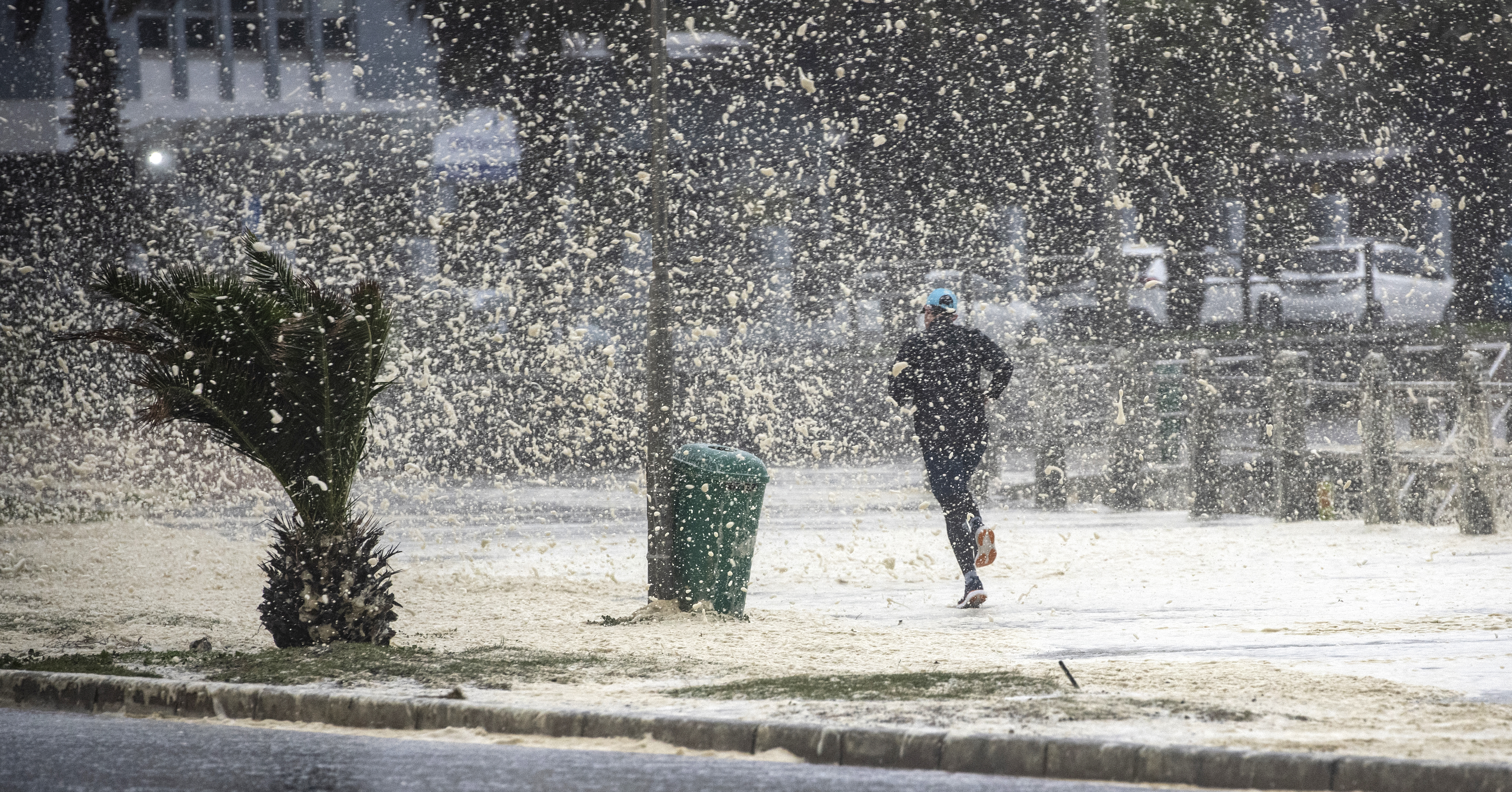“We must always be ready,” said Anton Bredell, Western Cape MEC for Local Government, Environmental Affairs and Development Planning, on Thursday, 17 April 2025, during a provincial readiness media briefing.
Bredell and the team from provincial disaster management briefed journalists on the plans for the upcoming winter season, which has been predicted to have below-normal rainfall.
In March, Daily Maverick reported that the South African Weather Service (Saws) predicted below-average rainfall for the province, which over the past two years has seen devastating winter rainfall, leading to flooding.
Speaking on Thursday about the previous seasons’ weather, Bredell said: “Now, the past two seasons we had severe weather events and we had to deal with damage to our infrastructure, and… there were more than 100,000 people who were displaced in cold and wet weather.”
Daily Maverick has reported that storms and floods from June 2023 to July 2024 caused an estimated R1.8-billion in damage, according to the Western Cape Infrastructure Department.
Regarding the Western Cape, Bredell said: “We must always be ready for events such as wildfires, floods and droughts.”
Later rainfall than normal
Bredell reiterated the Saws prediction about seeing less typical rainfall patterns, including the possibility of the rains coming later in the year than normal.
“So we need to prepare for that.”
He also discussed the prospect of how low rainfall could affect the province’s water supply.
“If we don’t get the necessary rains, and we will keep a very close eye on that, and if the dam levels at the end of the season are low, then we will obviously talk to you again on water consumption going into 2026.”
It was better to “rather start earlier to save water, and with water restrictions — that’s our philosophy”, he said.
 Anton Bredell, the Minister of Local Government, Environmental Affairs and Development Planning. (Photo: Gallo Images / ER Lombard)
Anton Bredell, the Minister of Local Government, Environmental Affairs and Development Planning. (Photo: Gallo Images / ER Lombard)
Expanding on the concern over potential low levels of rainfall, Colin Deiner, the chief director of Disaster Management and Fire and Rescue Services, said an eye was being kept on dam levels.
“In 2016 when we sort of got an early warning that we’d have a dry season, we set up a task team and we were able to mitigate a lot of the Day Zero impact by getting on to this early, and this is what we’re doing again this year,” he said in relation to the province’s water crisis in 2018 and 2019.
Calculations
“We will look over a certain period of months where we are, what the rainfall has done, and then we’ll start doing the calculations as we move forward so that we can very quickly start informing people whether we might be facing a drought or not,” said Deiner.
He was quick to reiterate: “We’re not at that stage, there’s uncertainty, so clearly we will be keeping a very close eye on this.”
He added that even with the less-than-expected rainfall, the province was still keeping an eye on the usual problems: localised flooding, winter shack fires and snowfall in parts of the province. DM




 Western Cape Environmental Affairs and Development Planning MEC Anton Bredell. (Photo: Gallo Images / ER Lombard)
Western Cape Environmental Affairs and Development Planning MEC Anton Bredell. (Photo: Gallo Images / ER Lombard) 